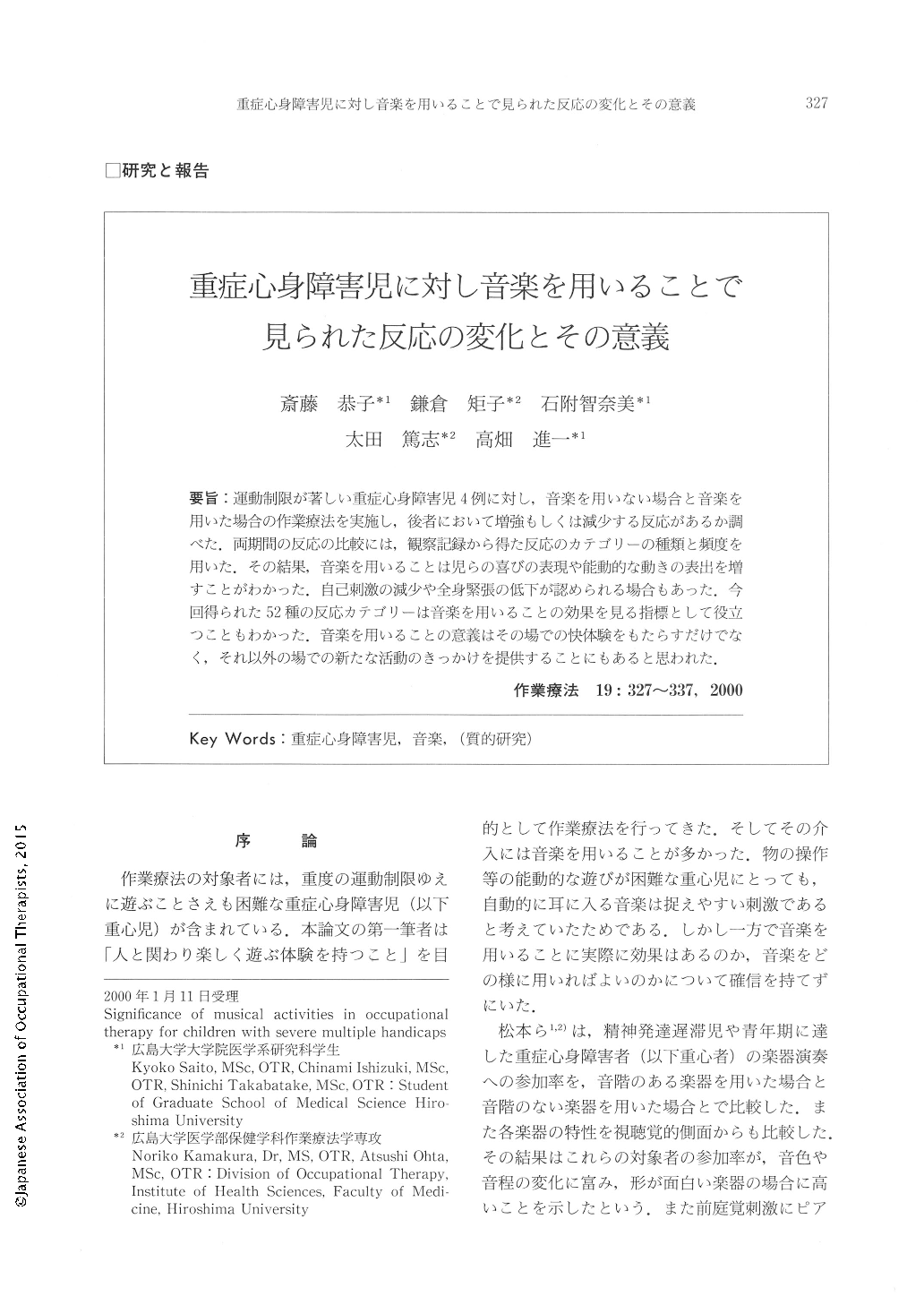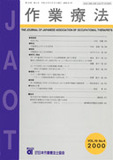Japanese
English
- 販売していません
- Abstract 文献概要
- 1ページ目 Look Inside
- 参考文献 Reference
- サイト内被引用 Cited by
要旨:運動制限が著しい重症心身障害児4例に対し,音楽を用いない場合と音楽を用いた場合の作業療法を実施し,後者において増強もしくは減少する反応があるか調べた.両期間の反応の比較には,観察記録から得た反応のカテゴリーの種類と頻度を用いた.その結果,音楽を用いることは児らの喜びの表現や能動的な動きの表出を増すことがわかった.自己刺激の減少や全身緊張の低下が認められる場合もあった。今回得られた52種の反応カテゴリーは音楽を用いることの効果を見る指標として役立つこともわかった.音楽を用いることの意義はその場での快体験をもたらすだけでなく,それ以外の場での新たな活動のきっかけを提供することにもあると思われた.
We conducted a qualitative study as a first step toward examining the effect of musical activities on occupational therapy for children with severe multiple handicaps.
We did musical interventions and non-musical interventions in 4 children with severe multiple handicaps who showed poor motor activity and poor expression in communication. From obsevation notes, which described their reactions, we made segments of data and categorized them according to specific behaviors and examined the effect of presence or absence of music. 52 reaction-categories were obtained. And they are useful marks when examining the effect of musical activities on occupational therapy for these kinds of people.
Our results suggested that musical activities provoke pleasure and its expression, give motivation for active engagement, induce new play (activities) and promote communication. In addition, the results demonstrated that each child has his or her own way to adapt to musical activities ; therefore, we must select and adjust musical activities carefully when we use them in a clinical setting. Additional studys are needed for these members of our population.

Copyright © 2000, Japanese Association of Occupational Therapists. All rights reserved.


